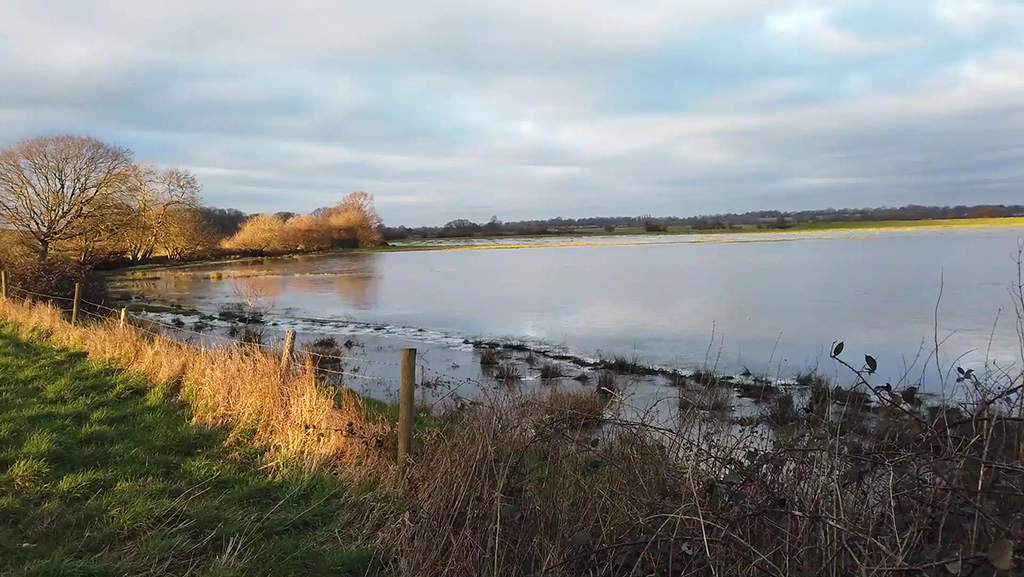Video: FW Investigates – would dredging reduce flooding?
 Flooded land on Tim Gue's farm © MAG/Philip Case
Flooded land on Tim Gue's farm © MAG/Philip Case The past few months of relentless wet weather have again highlighted the pressing issue of how best to manage rivers and watercourses near farmland.
Heavy rainfall events are becoming more frequent, and many farmers argue that a return to regular dredging and ditch maintenance is necessary to prevent prime food-producing agricultural land from flooding.
In the UK, dredging has historically been used to remove silt and sand from rivers and improve land drainage to support agricultural production and protect property from flood damage.
See also: Would river dredging help prevent flooding on farms?
However, in the past 40 years there has been a massive reduction in dredging undertaken by the Environment Agency (EA) in England, and it has faced criticism from farmers for taking a reactive approach to flood prevention.
Only on rare occasions has the agency decided to maintain rivers, for example following serious flooding events on the Somerset Levels, where local farmers say the measure has been very effective.
New video series
For the first part of a new video series, called FW Investigates, Farmers Weekly visited mixed farmer Tim Gue, whose farm in Steyning has suffered more regular episodes of flooding in recent years, in particular the past two which have seen extensive flooding for months at a time.
Watch the video below.
Mr Gue recognises that dredging is not appropriate in all circumstances, and he is certainly not advocating wholesale river clearance.
However, he believes a “little and often” approach to river maintenance would go a long way to alleviating flooding on his 567ha farm.
“For the last two winters, we have had roughly 150 acres (60ha) under water for considerable periods between October and March,” he said.
“It’s a floodplain, so we do expect this land to flood from time to time. But without proper river maintenance, the floodplain isn’t able to do its job because it never gets the chance to drain properly.”
For example, Mr Gue believes that if the EA dredged about 300m of the River Adur each year, it would have a minimal impact on the environment, but cumulatively would help to prevent serious flooding.
“We’re in a perfect storm. We have got a lot more housing, instant runoff and increased winter rainfall due to climate change,” he said.
“We have to be better than we were before. Our forefathers built a river system which worked and was fit for purpose, which it would still be if it was maintained. But the rainfall and runoff we have to deal with is exponentially more.”
Alternative view
In contrast, the Wildlife Trusts believes widespread dredging can cause damage to wildlife habitats and make flooding worse in some communities.
Instead, it says greater focus should be placed on natural flood management measures to slow the flow of water, including tree planting, creating and restoring ponds and wetlands, and steps taken to enhance soils and reduce compaction so they hold more water.
